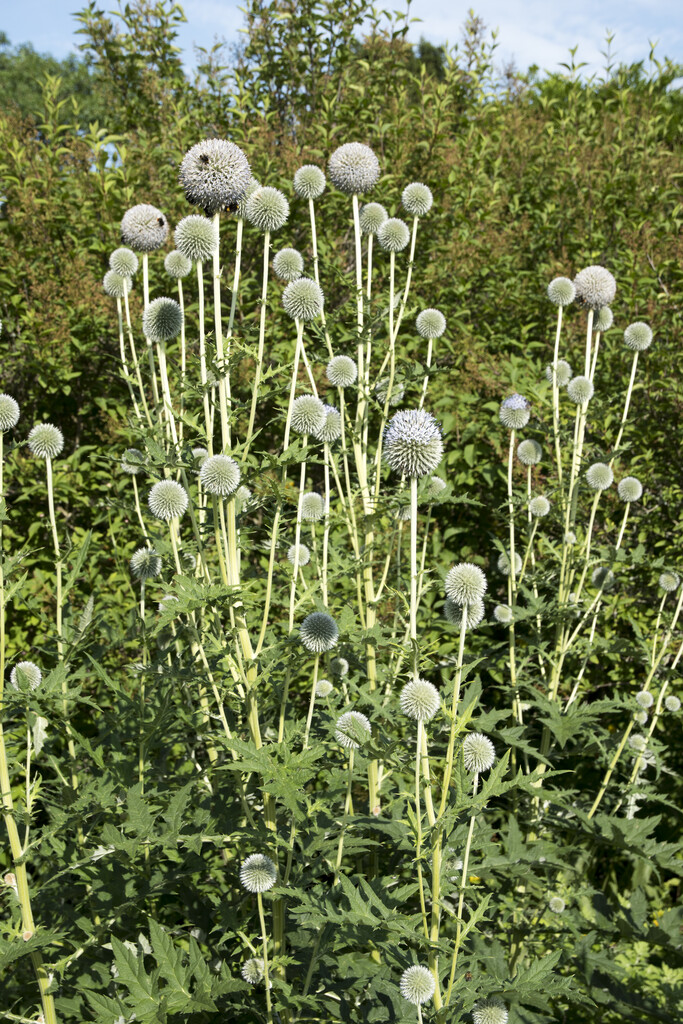Echinops sphaerocephalus
glandular globe thistle
A fast-growing, clump-forming perennial to 2m in height, with spiny grey-green leaves, and thistle-like silvery-grey flower heads on stout grey stems during mid and late summer
Size
Ultimate height
1.5–2.5 metresTime to ultimate height
2–5 yearsUltimate spread
0.5–1 metresGrowing conditions
Moisture
Well–drainedpH
Acid, Alkaline, NeutralColour & scent
| Stem | Flower | Foliage | Fruit | |
| Spring | Grey Silver Green | |||
|---|---|---|---|---|
| Summer | Grey Silver | Grey Silver Green | ||
| Autumn | Grey Silver Green | |||
| Winter |
Position
- Full sun
Aspect
South–facing or West–facing
Exposure
Exposed or ShelteredDrought resistance
Yes Hardiness
H7Botanical details
- Family
- Asteraceae
- Native to GB / Ireland
- No
- Foliage
- Deciduous
- Habit
- Clump forming
- Genus
Echinops can be annuals, biennials or perennials with simple or pinnately lobed, spiny leaves and spherical blue or whitish flower-heads
- Name status
Correct
- Plant range
- Eurasia
How to grow
Cultivation
A hot position with full sun in well-drained soil is best but tolerant of almost any soil or situation except deep shade
Propagation
By division in spring or by root cuttings in the dormant season. Propagate by seed in mid-spring as this cultivar will come true from seed
Suggested planting locations and garden types
- Cottage and informal garden
- Architectural
- Gravel garden
- Wildlife gardens
- Flower borders and beds
Pruning
Cut down winter-damaged stems to the base in early spring
Pests
May be susceptible to aphids
Diseases
Generally disease-free
Get involved
The Royal Horticultural Society is the UK’s leading gardening charity. We aim to enrich everyone’s life through plants, and make the UK a greener and more beautiful place.
